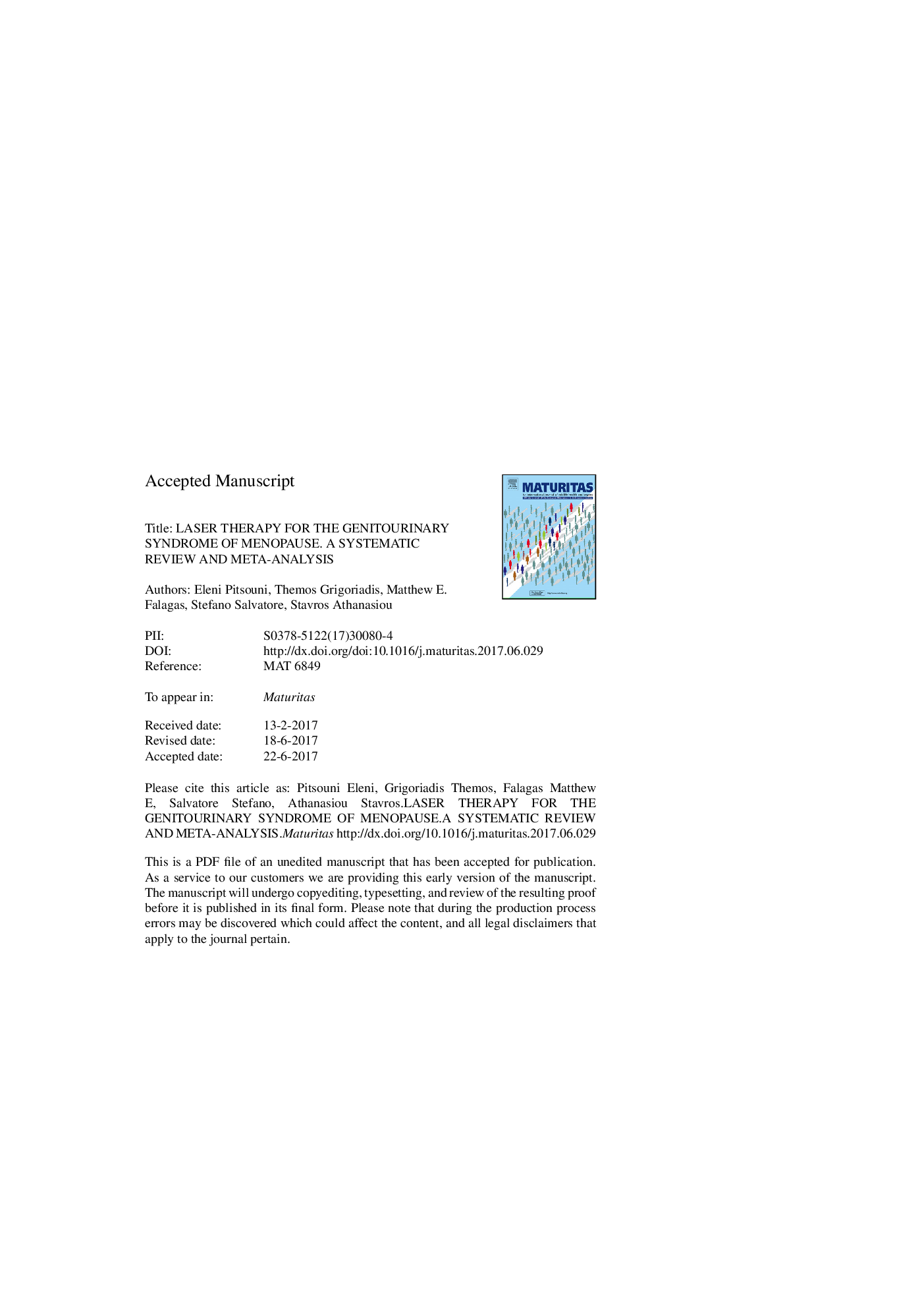| کد مقاله | کد نشریه | سال انتشار | مقاله انگلیسی | نسخه تمام متن |
|---|---|---|---|---|
| 5503464 | 1535284 | 2017 | 28 صفحه PDF | دانلود رایگان |
عنوان انگلیسی مقاله ISI
Laser therapy for the genitourinary syndrome of menopause. A systematic review and meta-analysis
ترجمه فارسی عنوان
لیزر درمان برای سندرم تخمدان استخوانی یائسگی. بررسی منظم و متا آنالیز
دانلود مقاله + سفارش ترجمه
دانلود مقاله ISI انگلیسی
رایگان برای ایرانیان
کلمات کلیدی
موضوعات مرتبط
علوم زیستی و بیوفناوری
بیوشیمی، ژنتیک و زیست شناسی مولکولی
سالمندی
چکیده انگلیسی
This study aimed to identify and then synthesize all available data regarding the efficacy of laser therapy for postmenopausal women with genitourinary syndrome of menopause (GSM) with/without urinary incontinence (UI). PubMed, Scopus, Web of Science, Cochrane Library and ClinicalTrials.gov were searched in October 2016. The keywords were “laser genitourinary syndrome of menopause”, “laser vulvovaginal atrophy”, “laser vaginal atrophy” and “laser women incontinence”. Quality of reporting and risk of bias of the included studies were assessed according to STROBE and MINORs checklists, respectively. Quality of the body of evidence was evaluated with the GRADE approach. Fourteen studies involving 542 participants were included in this systematic review and meta-analysis. All GSM symptoms (dryness/dyspareunia/itching/burning/dysuria/urgency/frequency) and UI decreased significantly and consistently in all available publications. The pooled mean differences for the various symptoms were: dryness â5.5(95%CI:â6.7,â4.4;7studies;I2:0%), dyspareunia â5.6(95%CI:â6.8,â4.5;7 studies;I2:0%), itching â4(95%CI:â5.7,â2.2;6 studies;I2:79%), burning â3.9(95%CI:â5.9,â2;6 studies;I2:87%), dysuria â2.9(95%CI:â5.1,â0.7;4 studies;I2:90%) and UI â4.9(95%CI:â6.4,â3.4;2 studies;I2:0%). Because urgency/frequency was assessed by different methodologies the data could not be meta-analyzed. Furthermore, KHQ, UDI-6, MCS12/PCS12, FSFI, overall sexual satisfaction and measurements of the effect of laser therapy on the local pathophysiology improved significantly. In conclusion, laser therapy for postmenopausal women with GSM appears promising. It may reduce symptom severity, improve quality of life of postmenopausal women and restore the vaginal mucosa to premenopausal status. However, the quality of the body of evidence is “low” or “very low” and, thus, evidence-based modification of current clinical practice cannot be suggested.
ناشر
Database: Elsevier - ScienceDirect (ساینس دایرکت)
Journal: Maturitas - Volume 103, September 2017, Pages 78-88
Journal: Maturitas - Volume 103, September 2017, Pages 78-88
نویسندگان
Eleni Pitsouni, Themos Grigoriadis, Matthew E. Falagas, Stefano Salvatore, Stavros Athanasiou,
